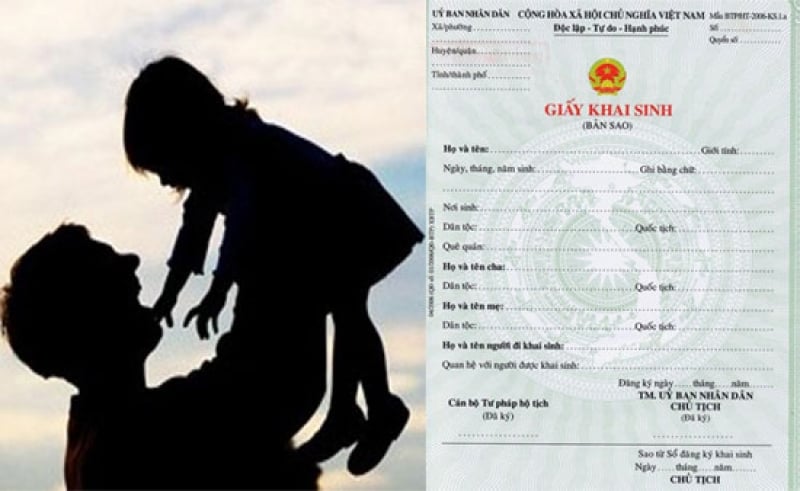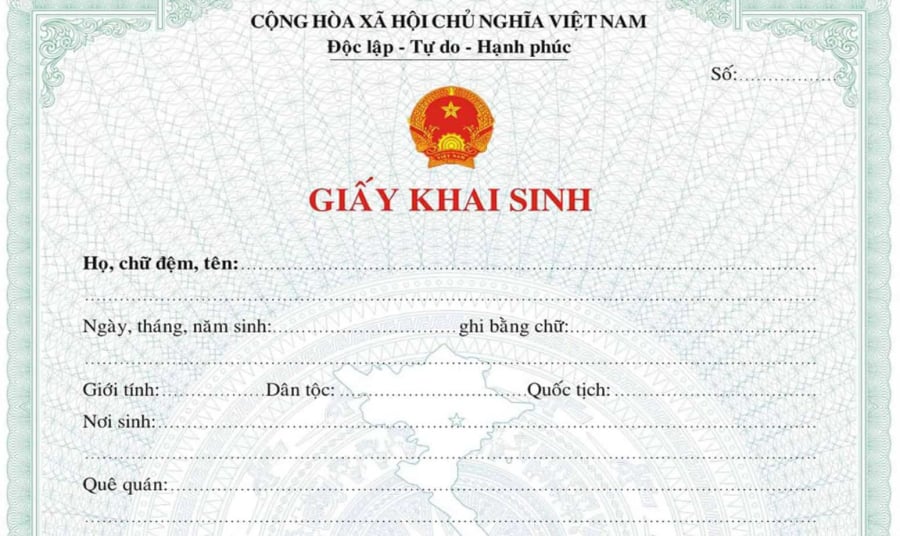Names are not just a means of identification, but they also carry meaning, cultural values, and can impact a person’s future. In Vietnam, naming a child at birth is clearly regulated by law to ensure solemnity and respect for an individual’s identity. The following are prohibited names that parents should be aware of to avoid legal violations and ensure a bright future for their children.

Names have a lifelong impact, hence the need for thoughtful consideration.
1. Names with Offensive or Negative Meanings
One of the fundamental principles of naming is to ensure solemnity and respect for the bearer. Therefore, names with offensive, vulgar, discriminatory, or derogatory connotations are prohibited. For instance, names that insult or demean others, potentially harming their honor or dignity, are unacceptable.
Giving a child a name with a negative connotation can lead to social stigmatization and isolation, negatively impacting their personal life and development. Additionally, names associated with social vices, violence, or anything distasteful are forbidden to maintain societal morals and cultural values.
2. Excessively Long or Difficult-to-Pronounce Names
A child’s name should be concise, easy to read, remember, and pronounce to facilitate daily communication. In Vietnam, excessively long and complex names with multiple syllables can cause administrative, educational, and social inconveniences. Vietnamese law stipulates that an individual’s name should not exceed a reasonable length and complexity.
A name that is too long or has a challenging pronunciation can be inconvenient for the bearer and create difficulties in memory, reading, and writing. For example, a name with an excessive number of letters, complex syllables, or unusual pronunciation will be restricted in usage and may be rejected in essential administrative documents.
3. Names with Political or Subversive Connotations
Names associated with politics, especially those with subversive, inciting, or controversial historical implications, are prohibited. This includes names linked to organizations or individuals opposing the state or dark historical events.
Vietnamese law strictly forbids giving children names with sensitive political connotations to maintain public order and avoid misunderstandings and unnecessary disputes. For instance, names that could be misconstrued as linked to subversive groups or those containing distasteful propaganda will not be accepted on birth certificates.

Names should be contextually and culturally appropriate.
4. Avoid Using Numbers or Special Characters:
Parents are not allowed to use numbers or special characters such as @, #, $, etc., in their children’s legal names, as Vietnamese law does not recognize the use of such characters in names.
5. Do Not Use Foreign Language Names:
Article 26, Clause 3 of the Civil Code also stipulates that personal names must be in Vietnamese or the language of ethnic minorities in Vietnam. Non-compliance may result in the name being rejected during birth registration. With the increasing rate of intermarriage between Vietnamese and foreigners, children with Vietnamese citizenship must still adhere to this regulation, meaning that names in foreign languages will not be accepted.

Avoid special characters and foreign language names on birth certificates.
Tips for Choosing a Name for Your Child
When naming your child, carefully consider the meaning and cultural and legal appropriateness of the name. A beautiful and meaningful name will boost the child’s confidence and pride and help them integrate into society more easily.
-
Choose a name with a positive meaning: A name should not only serve as an identifier but also embody the parents’ wishes and aspirations for their child. Opt for names that convey strength, intelligence, talent, or positive traits.
-
Ensure memorability and pronounceability: A concise and easily pronounceable name will benefit your child in communication and prevent unnecessary complications in administrative processes.
-
Avoid overly popular or repetitive names: When choosing a name, steer clear of those that are too common or similar to influential figures with negative associations to prevent misunderstandings or future complications.
Naming your child is a significant responsibility. A beautiful and meaningful name is not just a precious gift from parents to their child but also a foundation for their future success. Understanding the legal regulations surrounding naming will help parents avoid violations and ensure a smooth and happy life for their children.
































